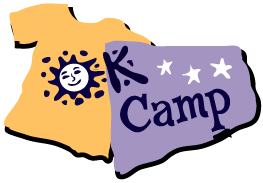Why are native bees important?
Most people know that honey bees are important for pollination and are suffering dramatic declines in population, but most people do not realize that native bees do the yeomen’s share of pollination, especially when it comes to native plants, and are also suffering a dangerous decline.
There were no honey bees in America before settlers brought hives from Europe so native bees have been pollinating this continent’s flowering plants since the last Ice Age. In fact the honey bee does very poorly compared to native bees when pollinating many native plants, such as pumpkins, cherries, blueberries, and cranberries. Due to their different foraging behavior, native bees are also more efficient than honey bees at pollinating plants. For example, it only takes 1 blue orchard mason bee to do the ‘pollination work’ of 100 honey bees.
Native bees are solitary and gentle!
While honey bees are social and live in hives with divided labor, most native bees are solitary, with each female bee building one nest, foraging, laying eggs, and sealing them so the larvae remain safe. Native bees are gentle, in that they do not actively defend their nests or attack or sting. Most native bees are too small to even physically sting a human.
Examples of native bees include:

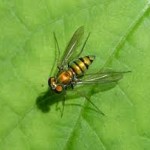
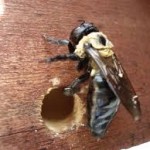
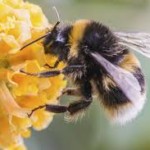
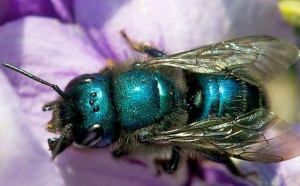

Native bee nests
Some native bees build nests underground (‘miners’); others use hollow stems or holes in trees, usually left by beetles (‘hole nesters’); and some use their powerful jaws to make holes in wood (‘carpenters’). Whatever their method, bees choose dry, sunny, sheltered sites that are just the right size for their needs. Females provide in one cell all the food required by their larvae to become an adult(e.g. mass provisioning), overwintering in a cocoon until emerging the following spring.
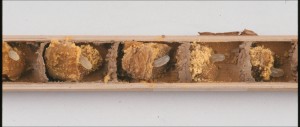
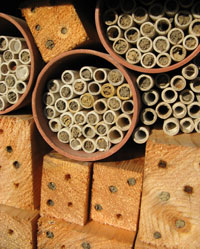
For more information about the biology and importance of native bees, check out:
- “Solitary Bees” an episode of Growing a Greener World TV
- “Bee Basics: An Introduction to Our Native Bees” a publication of the USDA Forest Service and the Pollinator Partnership
- Native Bee Biology at the Xerces Society website
